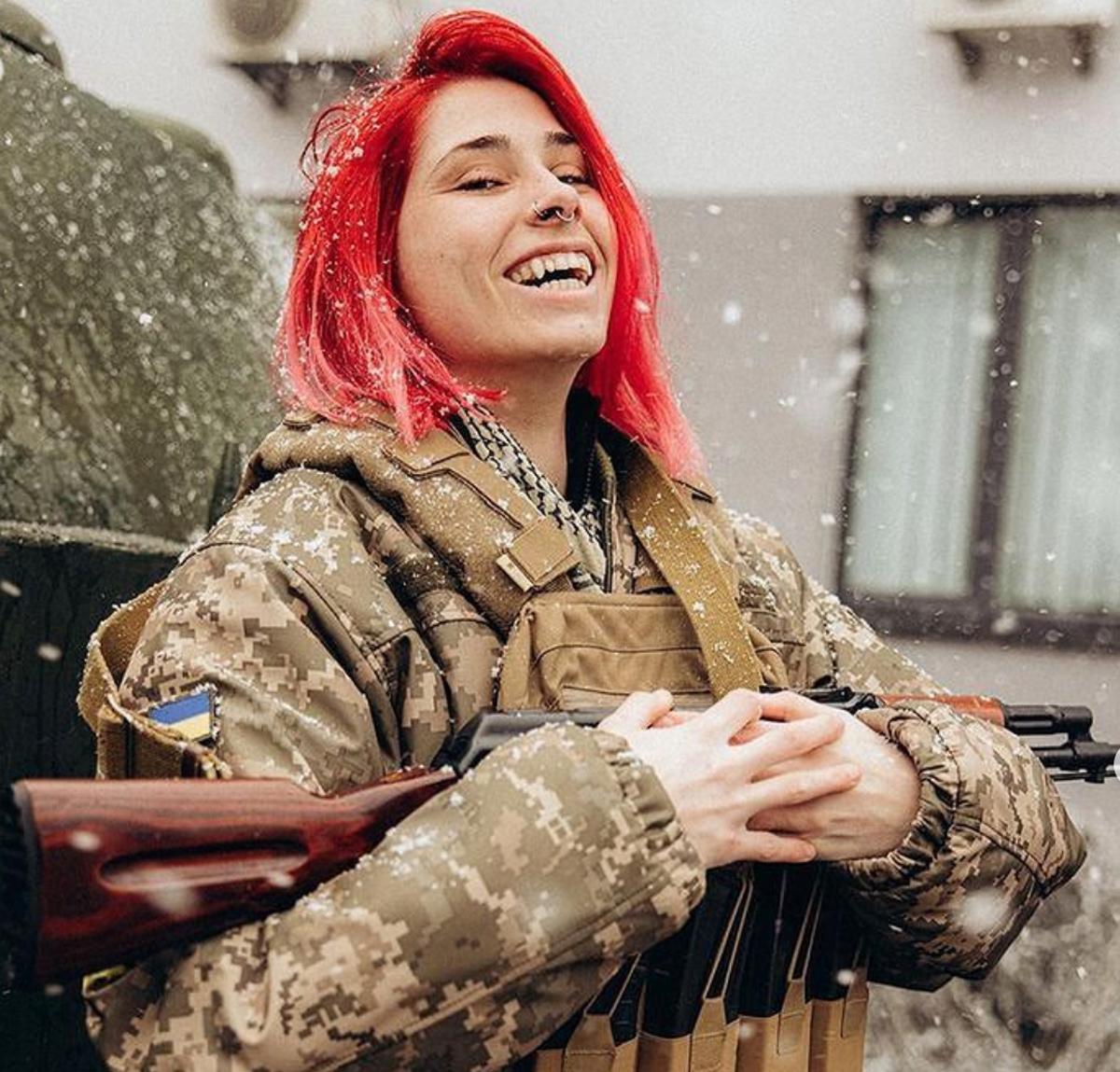Fighting homophobia on Ukraine’s front lines
Colin Stewart is a 45-year journalism veteran living in Southern…
In addition to the trauma of Russia’s invasion of Ukraine, some LGBTQ Ukrainians see the fight against Russia as an opportunity to combat homophobia by proving their loyalty as Ukrainian soldiers.

Euronews published the following article about Anastasia, a lesbian currently operating a Ukrainian military drone, and about a recent financial contribution from UkrainePride to a right-wing military group fighting in Mariupol — a contribution made to bolster national solidarity.
See also these related articles in Erasing 76 Crimes:
- Glimpses of Ukraine’s LGBTQ warriors: 8 soldiers, 3 supporters resisting Russia (March 25, 2022)
- Chechnya’s homophobic strongman claims he’s fighting against Ukraine (March 14, 2022)
- Ukraine’s LGBTQ community joins fight against Russian invaders (March 4, 2022)
This is the recent Euronews article<:/em>
‘We did not run away’: Ukraine’s LGBTQ+ community fights homophobia on the front lines
Since Russia invaded Ukraine in February, members of the LGBTQ+ community and activists have been visibly joining and helping Ukraine’s army – with some hoping their participation will erode prejudice.
With this goal in mind, one LGBTQ+ organization even donated to Azov, a far-right group with a history of extreme homophobia before the war.
Anastasia is a Lesbian who has been volunteering on and off with the army since Russia first invaded in 2014.
While she spent five years as a civilian before the war began on February 24, she immediately volunteered to work as a drone operator as fighting broke out.
When Russian forces were originally circling the country’s capital, she worked only 20 kilometres from the frontlines around Kyiv.
“We have a problem of homophobia [in Ukraine],” she told Euronews. “And now that the war has begun, people have asked ‘where are your LGBTQ+ soldiers?’
“And here we are. We are on the front lines. We did not run away. We are not hiding. We are defending.”
She also said that she was fighting because of what could happen if Ukraine loses the war.
“It is also a question of freedom because Russians will come here,” she said. “If they come here, they will arrest and kill us,” she told Euronews.
“Because we are both LGBTQ+ Ukrainians and Ukrainian patriots. Can you imagine what it will be like [if they win]?”

Anastasia is part of an organisation of LGBTQ+ soldiers and veterans in Ukraine, a group that marched with Kyiv Pride in 2018, and that is working to make the community more visible.
Activists have also been making gains in the country over the past couple of years.
For example, before the current war, organisers were trying to pass an anti-discrimination law that would criminalise hate crimes committed against someone because of their sexual orientation and gender.
“Before the war in Ukraine, we had good development for human rights for LGBTQ+ people,” said Anna Sharyhina, an organiser for KharkivPride.
“We had (our) first Pride in Kharkiv three years ago and it was dangerous and horrible. But we had a third pride last year, and it was more like a celebration.
“We had around 3,000 people on the street, and all of these people supported each other, and were smiling and dancing. And it was really like we can see some changes.”
Ukrainepride, an organisation based in Kyiv that was helping the LGBTQ+ community before the war, is aiding many of the volunteers and soldiers on the front lines.
The group has also donated €9,600 to the far-right group Azov, which is fighting in Mariupol. Azov has previously been accused of seeking out and attacking members of Ukraine’s LGBTQ+ community and its Roma population.
Ukrainepride says that it donated to a chapter of the group who were not involved in those attacks.
“We supported and donated to [the Azov brigade], who were previously against LGBTQ+ people in general,” said Sofia Lapina, an activist and member of Ukrainepride.
According to Lapina, the brigade contacted Ukrainepride after it raised money for the LGBTQ+ community.
Azov contacted them from Mariupol for the funds, though according to Lapina the group said it expected to be “cancelled” by the organisation, and not receive the support.
“They were really shocked because they did not think that they would get any help from the LGBTQ+ community,” she added.
One of the reasons why the organisation is helping both groups like Azov and the general LGBTQ+ military community is because “it shows that Ukrainian society is united at this time,” said Yuriy Dvizhon, another member of Ukrainepride.
“And it could explain to regular Ukrainians that even gay people could fight and protect their countries.
“Because before the war, so many people were against the LGBTQ+ community and they said some very bad and not cool things about our community.
“And now we are showing and trying to prove that we are still the same Ukrainians and we could do some useful things for Ukraine.”




